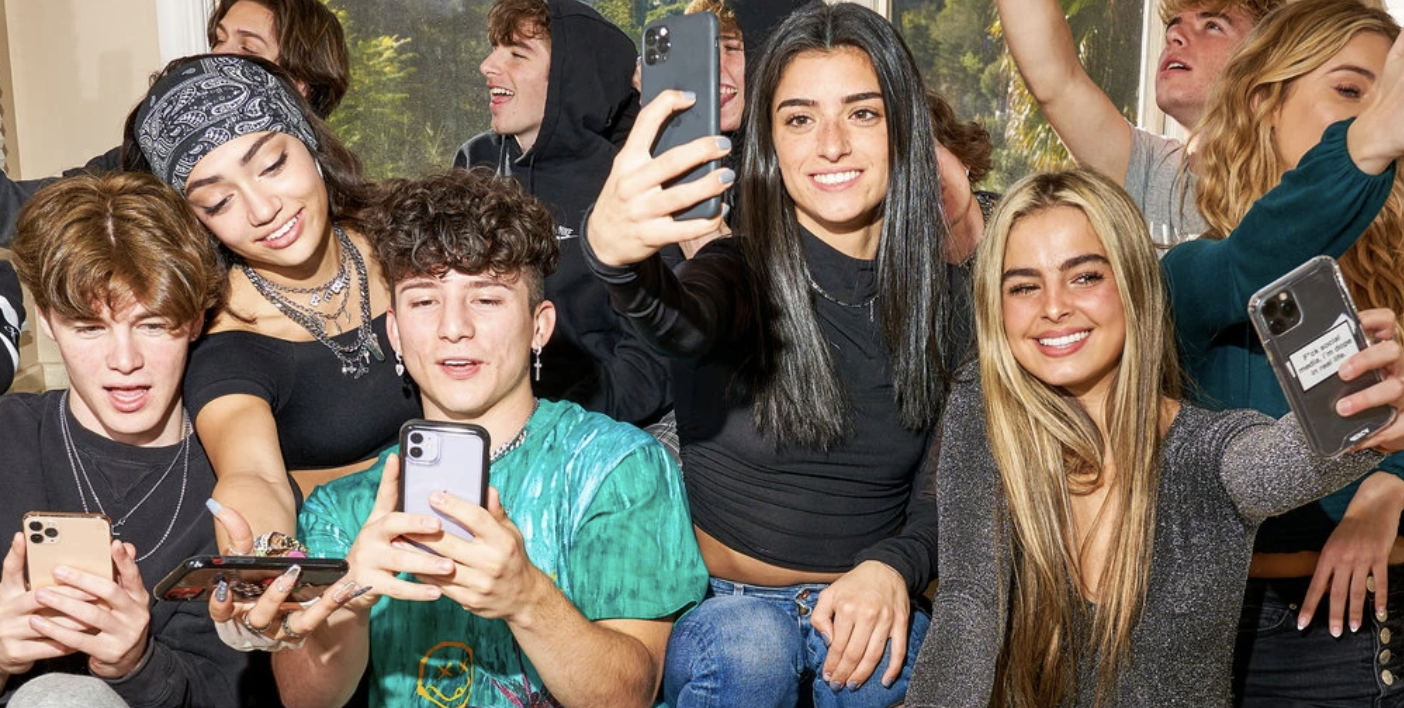
I’ve recently done a few experiments in influencer marketing that exposed an important shift in how we must view and assess content creators. In fact, today I will contend that there is a significant new dynamic changing the very fundamental nature of influencer strategy.
Let’s start at the beginning and think about what influencer strategy has been, and then examine what it is becoming.
Three types of influencers
If you study influencer marketing as I do, you can boil influencers down to three strategic tiers. Some people say there are 12 or even 15 types of influencers, but I think that is unnecessarily complicated. There are really three types that explain how the influencer strategy works.
At the very top, there are celebrities — entertainers, athletes, media stars. This is how it all started. Arguably the first influencer was silent film star Charlie Chaplin, who peddled chocolate, clothing, and cigarettes.

Today, this tradition is carried on by entertainers of every kind. In fact, it’s more popular than ever.
- George Clooney sells Nespresso.
- Kate Blanchett sells perfume.
- Shaquille O’Neil sells … well, everything.
 Working with a celebrity is pay for play. But if you want to align your brand with a certain image, this can be a very powerful way to sell stuff as long as the celebrity doesn’t do something stupid and ruin it for everybody.
Working with a celebrity is pay for play. But if you want to align your brand with a certain image, this can be a very powerful way to sell stuff as long as the celebrity doesn’t do something stupid and ruin it for everybody.
The second kind of influencer is the creator. These are self-made influencers who stand out through their commitment to content — blogs, podcasts, and yes, even TikTok videos. These influencers are more accessible and traditionally have connected to a specific audience like tech, fashion, food, or sports.
This is what makes them so powerful. Creators are committed to their passions and people know, love, and respect them for it. If you own a startup and you want to borrow a powerful audience, there is no better way to achieve rapid awareness than collaborating with top creators in your field.
Finally, there is the advocate. An advocate has a smaller audience, perhaps in the thousands, but they can really sell stuff. They live to tell their family and friends about their exciting new finds. They love to shop and unbox and if they find something cool and new they can’t wait to tell others about it.
That’s the most simple view of the influencer world. But now it gets interesting …
The new breed
I was recently learning about a new TikTok star. She’s a sophomore in college who loves making fun dance videos. She’s pretty and talented. Now that she has 4 million followers, she’s under a lot of pressure to create even more and better content. The big brand money is starting to come in.
She’s thinking about dropping out of college to focus 100 percent on TikTok videos. In one video, she looked at the camera and said, “What should I do today? I’m running out of ideas.”
Is she a creator? I suppose so … at least she started that way. But with 4 million followers and her growing role as a popular entertainer, she is now a celebrity. A self-made celebrity.
This is significant.
Think about how remarkable this is. She didn’t need an agent, a Hollywood contract, or a record deal. She basically willed her way into stardom with her great TikTok dances. I think that is awesome.
And it also points at how influencer marketing is being re-shaped.
The developmental league
I recently did an experiment with micro-influencers. As I immersed myself in this world, I realized that most of these folks weren’t just posting content to get a free package of cookies or a sample of earth-friendly detergent. They are working hard to make it to the A List. They aren’t just creators. They’re in the Celebrity Minor Leagues.
In Major League Baseball, there is a developmental league for young players. It normally takes 3-4 years for a 19-year-old player to make it to “The Show.” It occurs to me the same thing is happening in the influencer space. Young people are watching the Big League Celebrities and patiently improving their skills to get a sponsorship contract.
In baseball, very few players are good enough to make it into the Big Leagues. Similarly, very few content creators are good enough entertainers (let’s call it what it is) to make it as a celebrity influencer. A recent study showed 75 percent of UK teens want to be an influencer as their career. My guess is, 74.9 percent of them are going to be disappointed.
Changing dynamics of influencer strategy
What does this mean to you and your marketing?
The dynamics of influencer strategy are fragmenting in an interesting new way.
Five years ago, a creator was somebody who (generally) was a passionate expert. They loved learning about new ideas, products, and services and sharing them with their audiences … who trusted them for this very reason. Becoming a “professional influencer” was not really on the table.
But we’re in a new world, and making huge money from content on Instagram, Snapchat, YouTube, or TikTok is a career aspiration for millions of young creators.
The new reality is that today, creators (generally) aren’t experts or trusted resources. They’re celebrities in training.
When I did a recent experiment with “micro-influencers” and looked at the resulting content they posted, I realized that these young stars didn’t focus on the story or the product as a brand would wish. They focused on themselves. They’re entertainers in the minor leagues, dreaming of the big time. They’re primping, posing, and performing, not authentically promoting or advocating. I was underwhelmed.
Ultimately, this is going to throw influencer marketing strategy out of whack.
Implications for influencer strategy
I want to emphasize that I am painting with a broad stroke today. Of course there are still legitimate creators who are experts and influencers, and there always will be.
But influence strategy is going to be an order of magnitude harder for brands when most influencers aren’t building their authority, they’re under enormous pressure to build their celebrity.
One of the things I observed in my experiment was the common use of “engagement pods.” To gain celebrity status, influencers are normally being judged by engagement. A true authority on a subject would attract engagement naturally because a new idea or product would provoke discussion from interested and supportive fans. But this won’t happen if you’re merely posing. So … you’ll have to drive engagement and make your numbers in a different way. And, maybe, an unethical way.
Researchers at NYU have identified hundreds of groups of Instagram users, some with thousands of members, that systematically exchange likes and comments in order to game the service’s algorithms and boost visibility. In the process, they also trained machine learning agents to identify whether a post has been juiced in this way.
Engagement pods straddle the line between real and fake engagement, making them tricky to detect or take action against. And while they used to be a niche threat (and still are compared with fake account and bot activity), the practice is growing in volume and efficacy.
Going back to my sports analogy, this is like taking a performance-enhancing drug to make you seem better than you are. And, whether you are an athlete or an influencer, it’s not sustainable.
A study by HypeAudit showed that about 60 percent of accounts demonstrate some level of fraud and that 63% of marketing specialists have personal experience of influencer marketing fraud in their past campaigns. This has to be cleaned up.
The fracture in the field

Hype House photo from the New York Times
From the beginning, there have always been gamed accounts in the influencer world. But the dramatic new emphasis on celebrity over authority signals a permanent shift in how we must view and measure content creators.
- With big money forging celebrities instead of authorities, we will probably see fewer experts and more entertainers in this generation.
- Undoubtedly, the big influencer money will pressure more young people into making poor decisions to fake numbers that will hurt them in the long term.
- Brands simply must look beyond the audience and engagement numbers. Vetting talent will be much harder. There has to be a focus on advocacy and meaningful engagement.
- The trend toward celebrity is also an opportunity for some brands looking for a cost-effective way to align with an “image” instead of “thought leadership.”
- The emphasis on celebrity over authority will create great new opportunities for anybody teaching young people to sing, dance, act, play instruments, and create content in their own tiny Hollywood productions.
- The hype house trend will spread as celebrities-in-training collaborate on content with other rising stars. Eventually every major city in the world with have influencers living and working together in a hype environment. How do you gracefully age out of a hype house? What’s next? More change to come.
- The industry needs a “fraud-free” certification. Business opportunity for somebody.
- There will still be rising demand for young people who actually establish themselves as true authorities in topical fields such as health, tech, automotive, and sports, for example.
Lots of change ahead! What do you think? What did I miss?
 Mark Schaefer is the executive director of Schaefer Marketing Solutions. He is the author of several best-selling digital marketing books and is an acclaimed keynote speaker, college educator, and business consultant. The Marketing Companion podcast is among the top business podcasts in the world. Contact Mark to have him speak to your company event or conference soon.
Mark Schaefer is the executive director of Schaefer Marketing Solutions. He is the author of several best-selling digital marketing books and is an acclaimed keynote speaker, college educator, and business consultant. The Marketing Companion podcast is among the top business podcasts in the world. Contact Mark to have him speak to your company event or conference soon.
Follow Mark on Twitter, LinkedIn, and Instagram.
Illustration courtesy Pixabay


